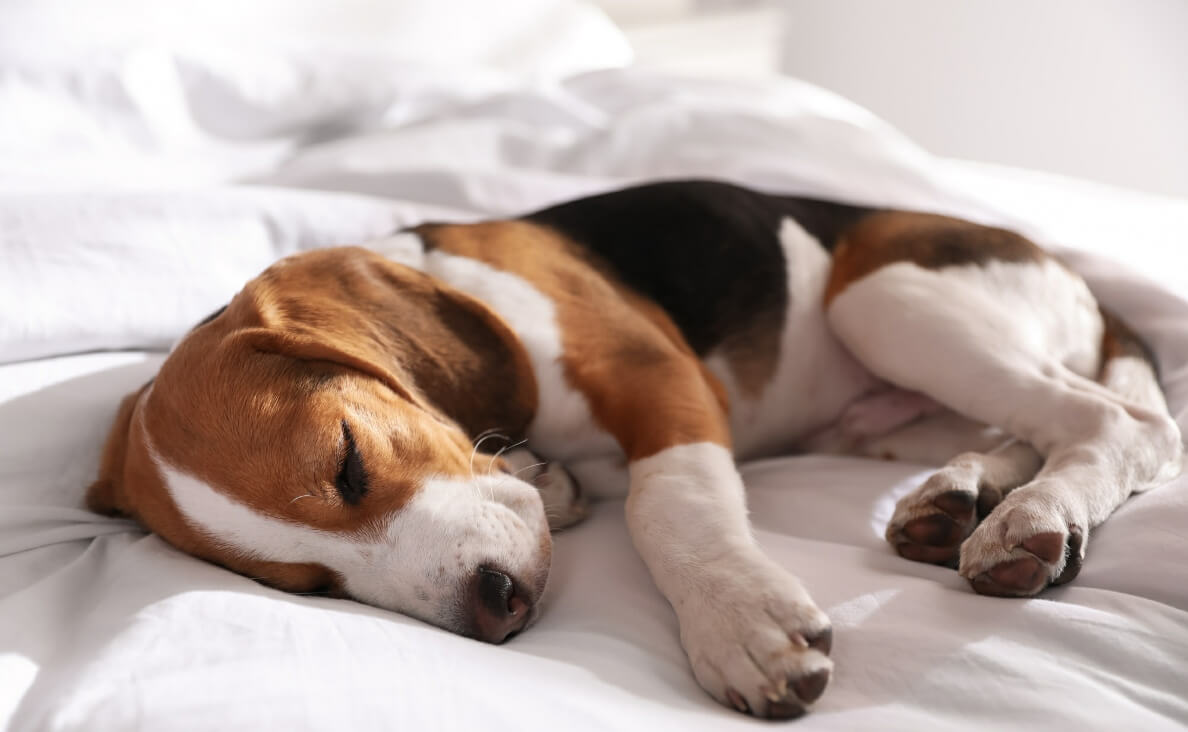
If you’ve ever watched your dog sleep, you may have noticed a fascinating phenomenon—sudden twitches, paw movements, or even soft barks. It’s common for pet owners to wonder what’s behind this behavior and if they should be concerned. Understanding why your dog twitches in their sleep can provide peace of mind and deepen the bond with your pet. In this post, we’ll explore the reasons your dog may be twitching in their sleep, the science behind it, and what it could mean for their health.
Understanding Canine Sleep Cycles
What Are the Sleep Stages When Your Dog Twitches in Their Sleep?
Just like humans, dogs go through several stages of sleep. There are two primary types: REM (Rapid Eye Movement) sleep and non-REM sleep. REM sleep is when dreaming occurs and is the stage where dogs are most likely to experience twitching, movement, and even vocalizations. In non-REM sleep, dogs are typically more still, as this is a deeper, restorative phase.
During REM sleep, the brain is almost as active as it is when awake. This heightened activity often results in involuntary muscle movements. When your dog twitches in their sleep, it’s usually a sign they are in REM sleep, likely dreaming about activities from their day or imagined adventures.
Related: 9 Dog Sleeping Positions and What They Mean
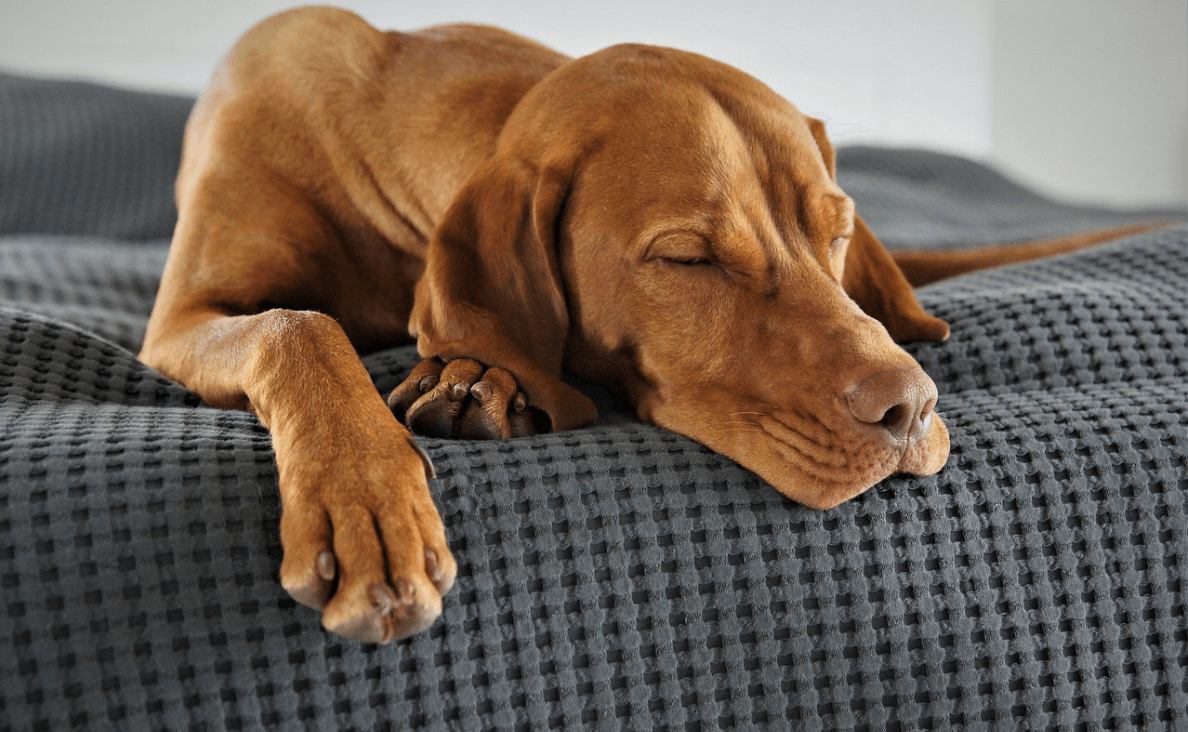
Why Do Dogs Twitch in Their Sleep?
Key Reasons Why Your Dog Twitches in Their Sleep
There are several reasons why dogs twitch in their sleep, most of which are entirely normal. Here’s a breakdown of the main causes behind this behavior:
1. Dreaming
One of the primary reasons a dog twitches in their sleep is that they’re dreaming. Just like humans, dogs’ brains process their daily experiences and emotions during sleep. Studies suggest that dogs dream about things they did during the day, such as running, playing, or even interacting with their favorite people. These dreams often lead to small muscle movements, which is why you may notice your dog twitching as if they’re running or wagging their tail.
2. Muscle Development and Exercise
If you have a puppy, you may notice that they twitch more frequently in their sleep. This twitching is essential for their muscle development and coordination, as their growing bodies practice movements that will eventually be refined through real-world experiences. This muscle movement is less common in adult dogs but can still occur as part of their natural muscle maintenance and repair.
3. Neurological Activity
Sleep twitching in dogs is often a result of normal neurological activity. The brainstem controls movement suppression during sleep, but in some cases, minor muscle movements still occur. When a dog twitches in their sleep, it’s usually the result of healthy, spontaneous firing of neurons that affects their muscles. This activity is a regular part of the brain’s functioning and is not anything to worry about.
4. Temperature Regulation
Surprisingly, twitching in sleep can also be related to a dog’s body temperature regulation. Dogs may shiver, shake, or twitch slightly in response to colder room temperatures, helping them maintain a comfortable body temperature. For example, if a room is particularly chilly, you might notice your dog twitching more as their muscles activate to stay warm. Providing a cozy blanket or adjusting the room temperature may help minimize twitching due to this reason.
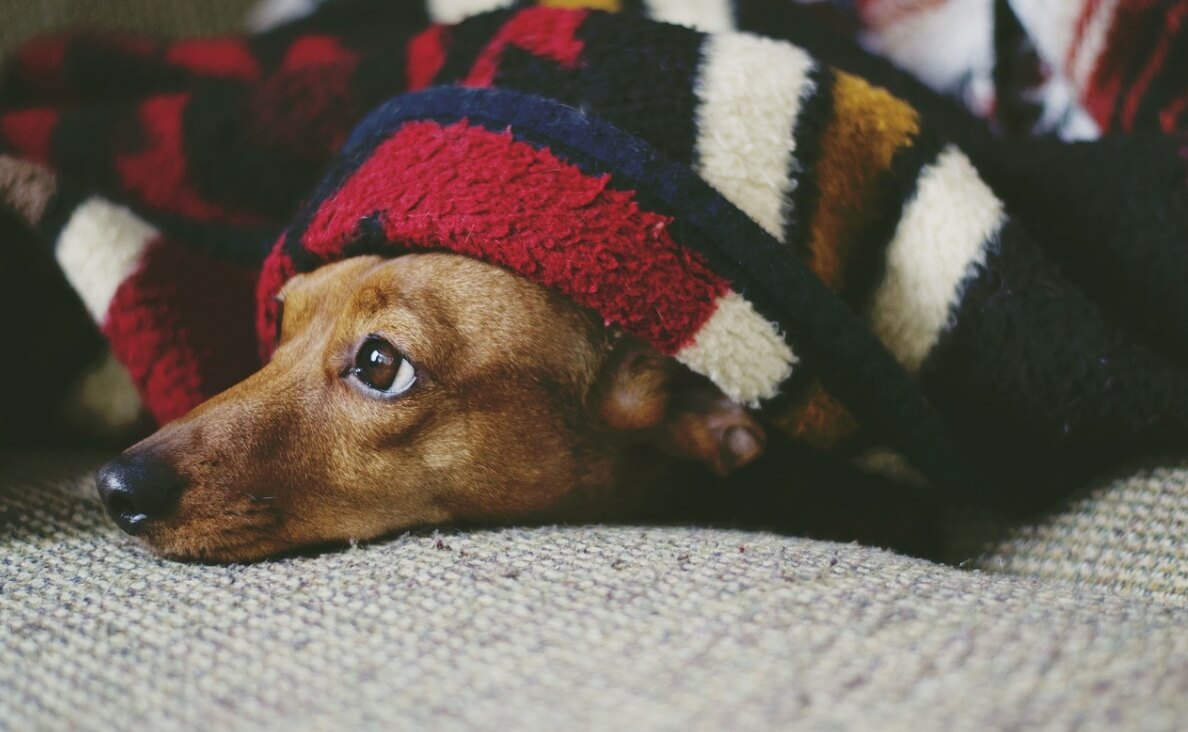
Is It Normal When Your Dog Twitches in Their Sleep?
Should You Be Concerned If Your Dog Twitches in Their Sleep?
For most dogs, twitching in sleep is entirely normal and nothing to worry about. It’s simply a natural part of their sleep cycle and does not typically indicate any medical issues. In fact, twitching can be a sign that your dog is getting adequate REM sleep, which is essential for their mental and physical health.
However, there are some signs that could indicate an issue. If your dog’s sleep movements become excessive or seem violent, it could be a symptom of a health problem, such as a seizure disorder. Seizures in dogs can sometimes be mistaken for intense twitching, but they usually come with other symptoms, such as drooling, rigid muscles, or unresponsiveness. If you notice these symptoms, consult your veterinarian to rule out any medical concerns.
In most cases, if your dog twitches in their sleep, it’s just part of their normal sleep routine and a sign that they are comfortable and relaxed.
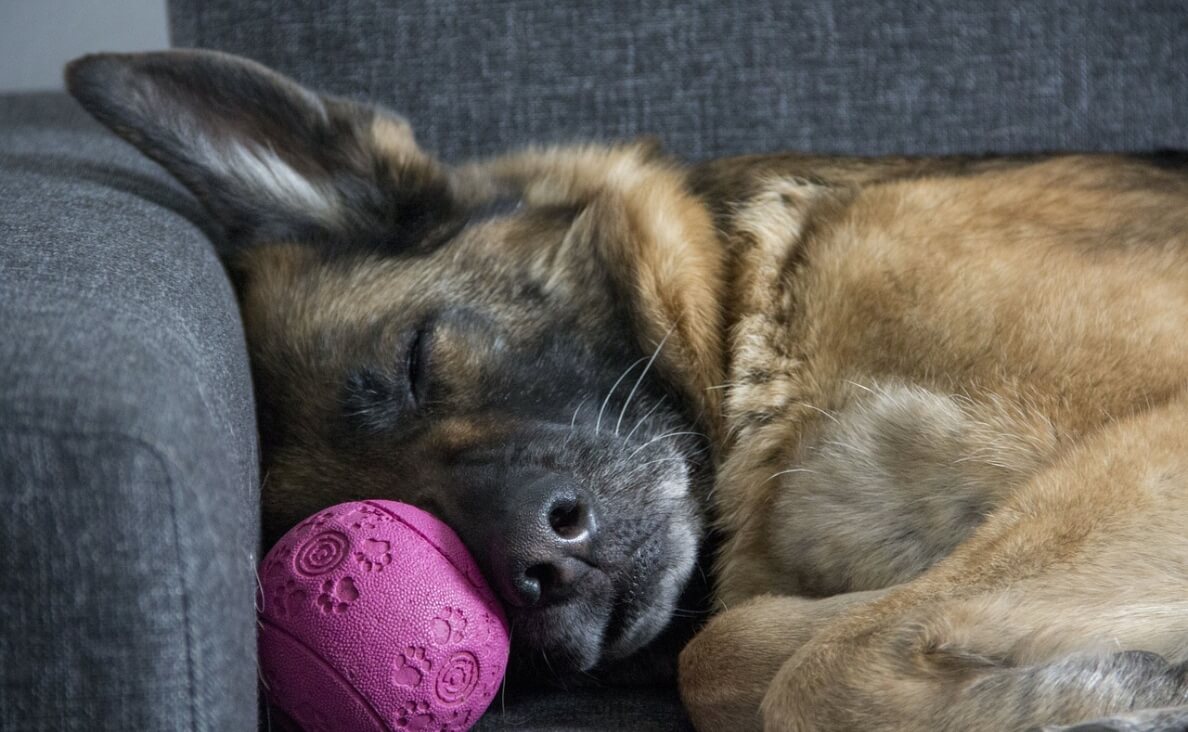
What to Do if You’re Concerned
How to Help if Your Dog Twitches in Their Sleep
If you’re concerned about your dog’s twitching, here are a few tips to ensure they’re comfortable and well-rested:
– Create a Calming Sleep Environment: Provide a comfortable, quiet space where your dog can sleep undisturbed. Dogs sleep best in environments that feel safe, so consider setting up a designated sleep area that’s free from loud noises and distractions.
– Observe for Other Symptoms: Watch for signs that may indicate a seizure or other health concerns. Symptoms such as heavy drooling, rigid muscles, or labored breathing may indicate a seizure, not typical sleep twitching. If you notice anything unusual, seek advice from your veterinarian.
– Let Your Dog Sleep Naturally: It can be tempting to wake a dog if you see them twitching, especially if the movements seem intense. However, it’s best to let them sleep undisturbed unless they’re displaying signs of distress. Waking a dog during REM sleep can disrupt their sleep cycle and make it harder for them to get the rest they need.
– Provide a Comfortable Temperature: Make sure the room temperature is suitable and offer a blanket if needed. Dogs have different temperature preferences, and a cozy blanket can help them feel more comfortable, reducing twitching caused by cold.
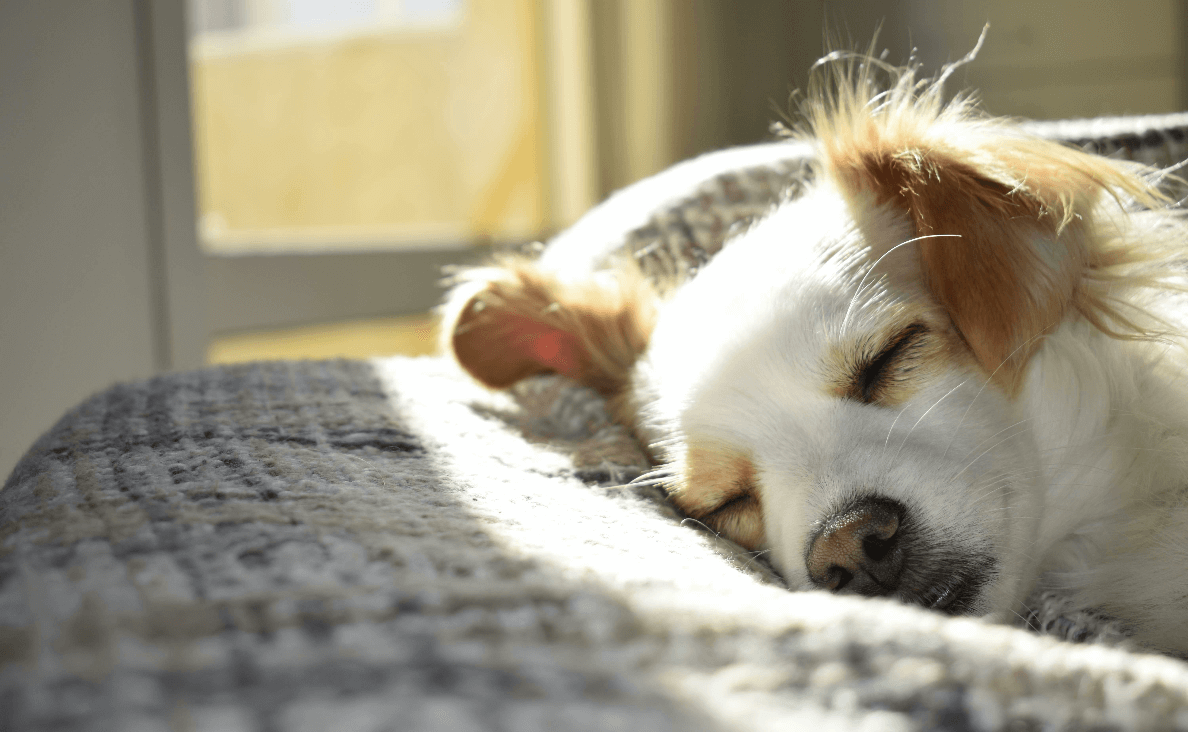
Final Thoughts
In summary, if your dog twitches in their sleep, it’s usually harmless behavior that occurs during REM sleep when their minds and bodies are actively processing their day. This twitching is natural and, in most cases, a sign that your dog is resting well. While it’s fascinating to observe, it rarely requires any intervention. However, if the twitching appears excessive or is accompanied by other unusual symptoms, consult your veterinarian to rule out any health issues.
When it comes to understanding why a dog twitches in their sleep, remember that it’s typically a sign of a healthy, content dog who’s dreaming away!
Have you ever noticed your dog twitching in their sleep? What do you think they’re dreaming about? Share your experiences in the comments below!

 6 Strange Dog Behaviors Explained
6 Strange Dog Behaviors Explained Have a Heart for Chained Dogs Week
Have a Heart for Chained Dogs Week How to Read Your Dog’s Body Language
How to Read Your Dog’s Body Language Challenges of Adopting Two Puppies at the Same Time
Challenges of Adopting Two Puppies at the Same Time 10 Surprising Reasons Your Dog Licks the Air
10 Surprising Reasons Your Dog Licks the Air






Leave a Reply